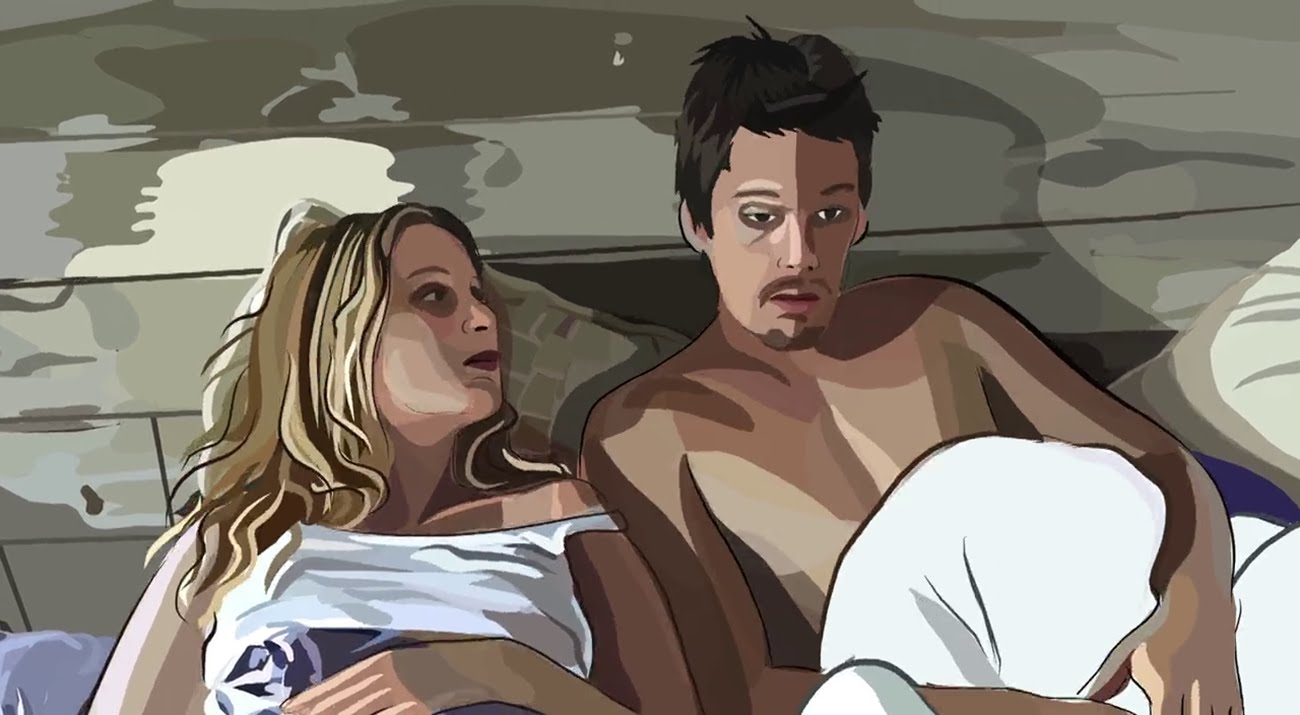Richard Linklater: The average filmgoer may not know his name, and none of his movies to date have really lit up the box office, but he is arguably one of the great auteurs of American cinema. Boyhood and the Before trilogy are his most heralded masterworks and deservedly so, but he also gave us the indelible debut of Matthew McConaughey (and his catchphrase) in Dazed and Confused, one of the best studio comedies of this century in School of Rock, and of course, the arthouse classics Slacker and Waking Life, both of which continue to influence wannabe philosophers like myself to this day.

And I haven’t even mentioned the dazzling rotoscope animation style that he pioneered in Waking Life and then deployed again to fascinating effect in both A Scanner Darkly and Apollo 10 ½: A Space Age Childhood, his latest film which landed on Netflix a few months ago.
Though his technical and formal achievements within the medium are remarkable, it’s Linklater’s humanism that makes his work so transcendent. His stories, particularly their sense of time and place, are so naturalistic that they often feel like documentaries; his characters, especially in his independent films, are realistically messy and uncommonly empathetic; and his themes and conflicts are personal and existential, gently pushing viewers to consider their own lives.
I am tempted to say that all of this adds up to “universality,” that Linklater is able to tap into something so fundamental to the human experience that anyone can relate to his movies. I know I saw a lot of myself in Mason, the moody kid in Boyhood, despite having very little on the surface in common with him. But to call Boyhood “universal” feels wrong, mainly because “universal” can’t help but imply “normal.”
Writing in The Atlantic as a sort of rebuttal to the film’s widespread critical acclaim, Imran Siddiquee notes that “as long as society continues to present lives like Mason’s as what’s normal, the childhood of people of color…will be seen as variant—as other. To be centered is not merely normalizing—it’s elevating.”((https://www.theatlantic.com/entertainment/archive/2014/09/the-not-so-relateable-boyhood/379700/))
But that isn’t a judgment of the film so much as it is a judgment of the response it got from our “society,” right? I bet Linklater simply approached the character from his personal perspective, as he usually does, drawing from his own boyhood as well as from his observations as a parent; I doubt that he had any intention of making Mason representative of all boys or even all American boys. But then again, Linklater did choose the incredibly broad title of Boyhood, which does suggest that it depicts a universal experience.
Broad titles are often a problem in this regard. When Girls was similarly criticized for its whiteness, I wondered whether anyone would have complained if Lena Dunham had given her show a more specific title like, say, White Hipster New York City Girls. Yes, I know that’s a terrible title—as would be, say, A White Suburban Texan Millennial Boyhood—but such titles would at least clarify that the filmmaker knows, and that the audience should note, that these stories are not meant to represent all Girls or all Boyhoods.
Apollo 10 ½: A Space Age Childhood almost feels like a response to this sort of criticism. To begin with, this title is a lot more specific, even though the story is once again centered on a boy growing up in a Texas suburbia. This boy’s name is Stanley and he is nine years old in 1969; Linklater was born in 1960 in the same neighborhood, so Stanley really might as well be a young Richard Linklater as remembered by the filmmaker in the present day.
The story shifts back and forth between memory and fantasy, the animation helping to blur the line between the two and allowing it to sidestep any questions about the authenticity of the presented events. The result is a dreamy nostalgia trip that I could only interpret as Linklater’s idealized version of his own childhood. I liked it enough, but I never quite connected with it. Unlike Mason in Boyhood, I could not see myself in this boy Stanley. I could only see Richard Linklater.

A few of Linklater’s previous movies could equally well be described as his idealized memories. Dazed & Confused and Everybody Wants Some!! are based on his high school and college experiences respectively; Before Sunrise is based on a night Linklater spent with a woman he met in Philadelphia in 1989.((https://slate.com/culture/2013/05/before-sunrise-inspiration-before-midnight-is-dedicated-to-amy-lehrhaupt-who-inspired-the-series.html))…And now that I think about it, I never related to any of those movies either. I just didn’t have any of those experiences.
And that’s okay. I still liked those movies quite a lot. As a brown (South Asian Indian American) guy, I don’t “see myself” in most movies. And sure, that bothers me sometimes (#representationmatters), but not in any of these cases. Linklater’s white Texan hipster culture is at the core of his special filmmaking voice, and it’s totally fine with me that I’m not a part of that culture, so I don’t expect or even want to see myself in his work. In fact, trying to picture myself in Linklater’s movies kind of ruins them for me:
- Before Sunrise – Instead of Ethan Hawke, imagine me, a brown dude around the same age with similarly questionable facial hair, hitting on beautiful blonde French Julie Delpy. I would have been maced or arrested well before the train got to Vienna.
- School of Rock – You think Dewey Finn could have stumbled into that fancy school and taken over an entire class so easily if he were anything but a white dude? Of course not.
- Dazed and Confused / Everybody Wants Some!! / Me and Orson Welles / Apollo 10 ½: A Space Age Childhood – Honestly, trying to picture myself in any movie that takes place before 1985 just reminds me that Indian Americans basically didn’t exist back then, and it makes me feel a little sad that these movies seem to have such love and nostalgia for a time that had no place for people like me.
In Apollo, the layers of fantasy and animation highlight the absurdity of that nostalgia and suggest to the viewer that this vision of the past is more a dream than a reality. From now on I think that’s how I will view all of Linklater’s filmed depictions of his past. And maybe it’s how I should think about my own memories too—they’ll always be a bit too idealized to be fully true.









